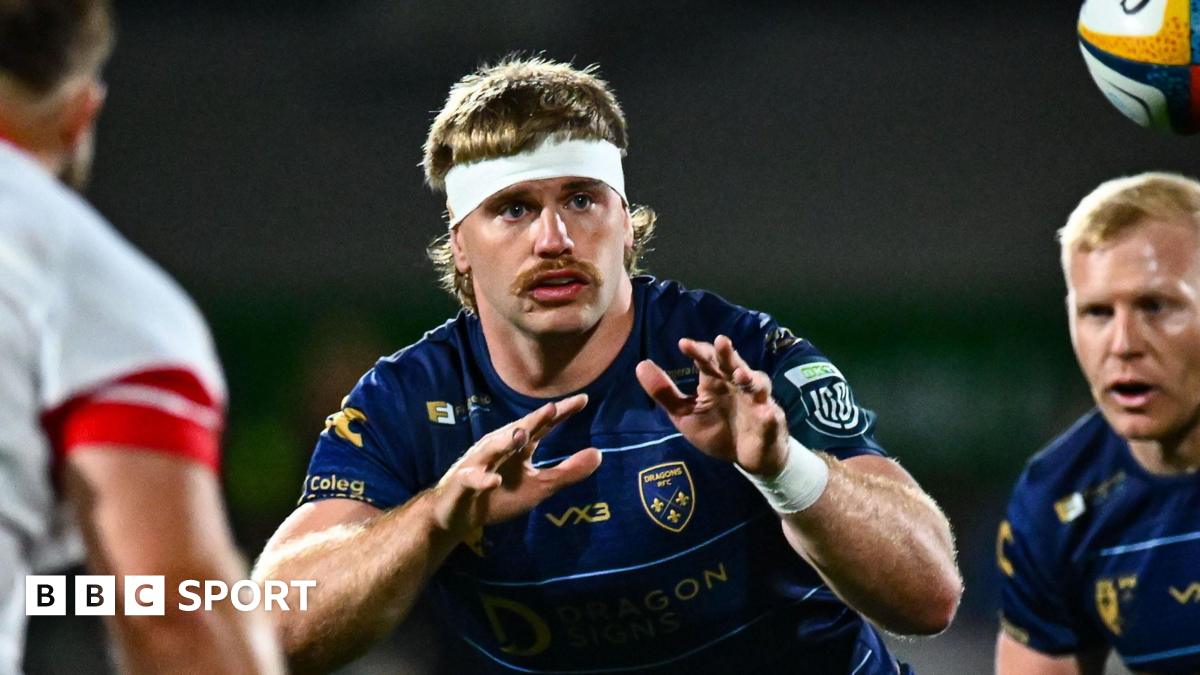Aaron Wainwright: Wales number eight set to leave Dragons and join Leicester
Wainwright has made 129 appearances for Dragons since making his debut in October 2017 and has only won 29 matches with 93 defeats and seven draws.
He turned down other offers in favour of signing a new Dragons deal in January 2024.
Now Wainwright is expected to decide to try another challenge and link up with fellow Wales back-rowers Tommy Reffell and Olly Cracknell at Leicester.
Wainwright will still be available for Wales because he has 62 international caps.
Welsh rugby’s 25-cap rule says anybody below this tally cannot play international rugby if they sign for a club outside of Wales but Wainwright easily exceeds that bar.
A significant proportion of Steve Tandy’s Wales side already ply their club trade in England with 13 non-home-based players involved in the autumn squad.
Wainwright, Lake and Morgan are joining the likes of Dafydd Jenkins, Louis Rees-Zammit, Tomos Williams, Rhys Carre, Nicky Smith, Nick Tompkins, Jarrod Evans, Max Llewellyn and Freddie Thomas, who all play for English clubs, while lock Adam Beard is at French side Montpellier.
Leicester had also been keen on recruiting Wales fly-half Dan Edwards, but he is close to committing his future to Ospreys.
Edwards, 22, would be ineligible for Wales selection if he went to play in England because he has only played seven internationals.
